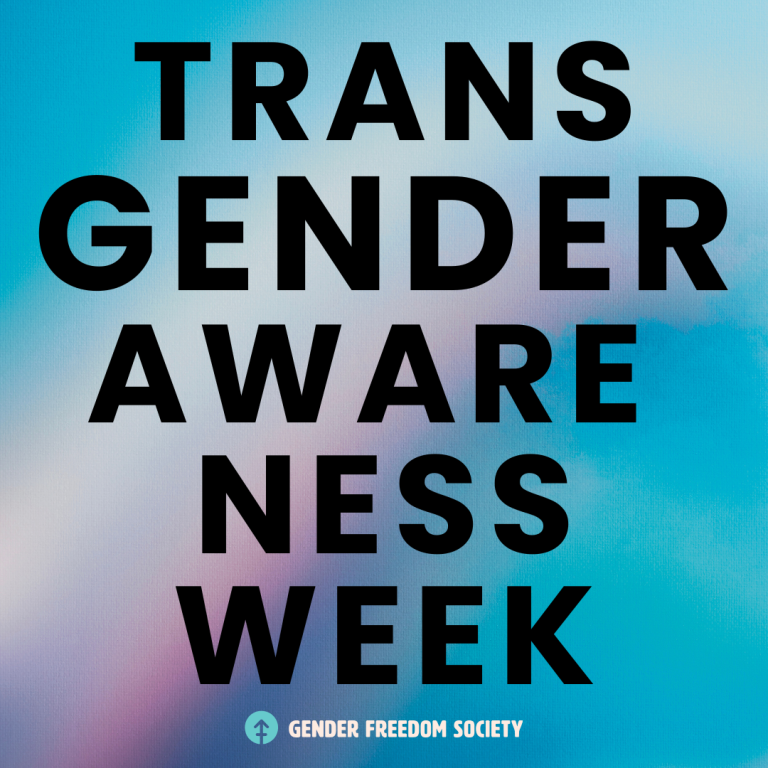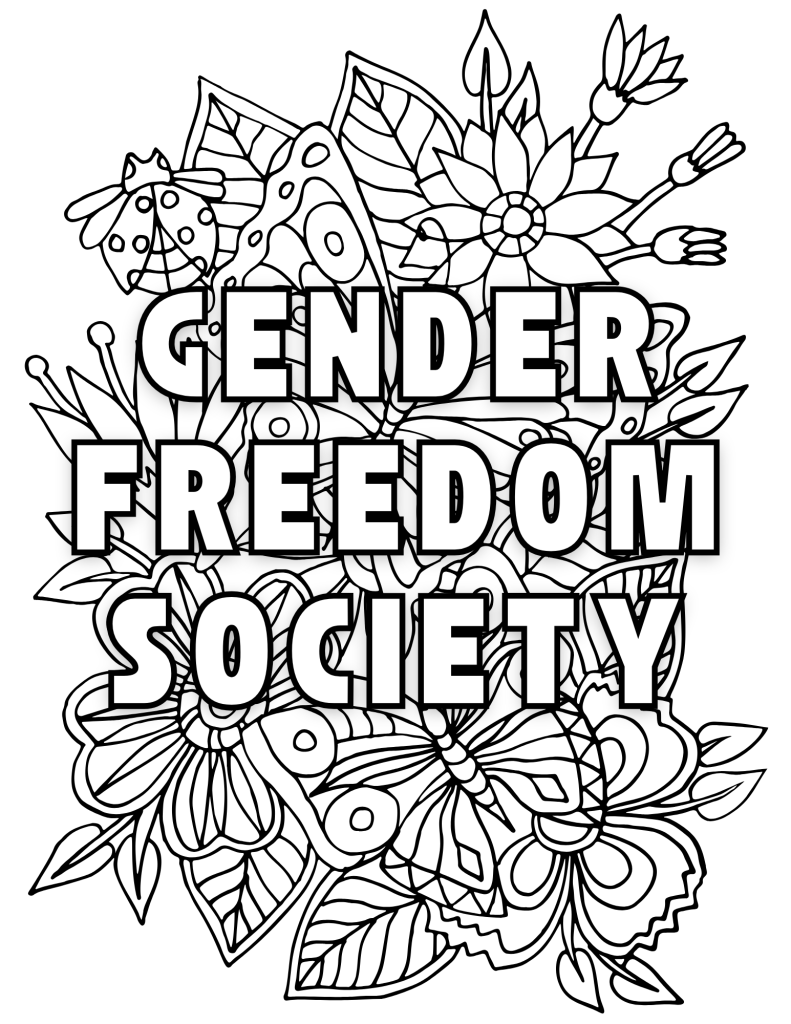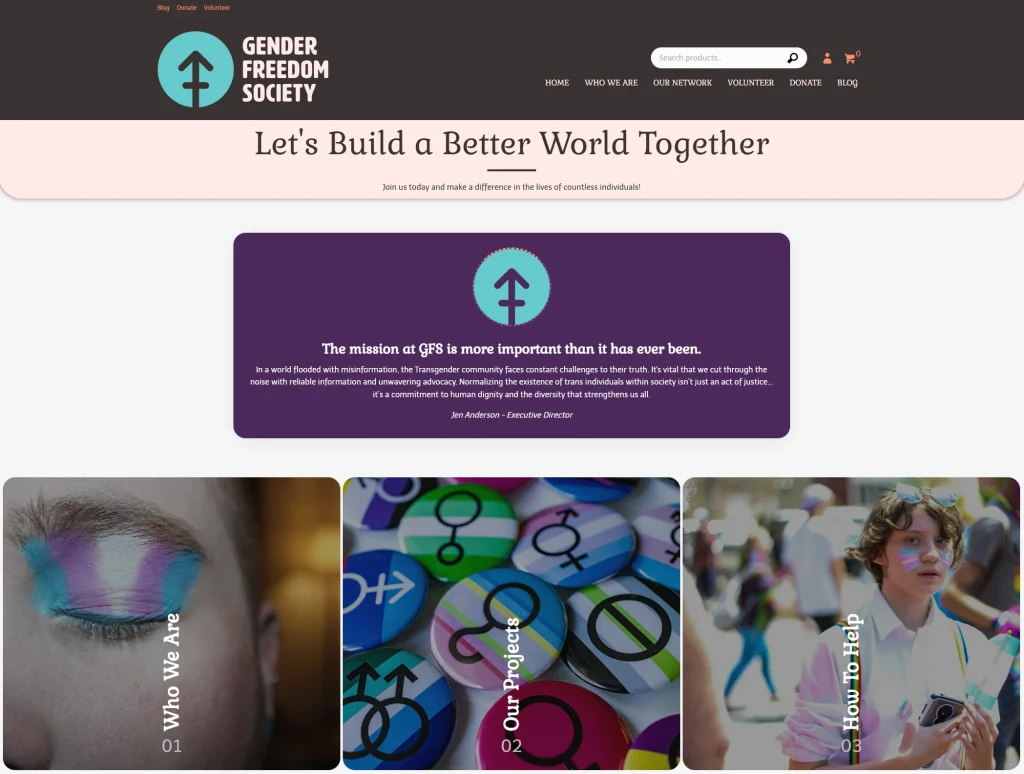
Every November, the transgender and non-binary community, along with allies around the world, come together for Transgender Awareness Week. This is a time to uplift trans voices, share stories, and educate others about the experiences, challenges, and resilience of transgender people. The week leads up to Transgender Day of Remembrance on November 20, a solemn observance that honors those whose lives were lost to anti-transgender violence.
What is Transgender Awareness Week?
Transgender Awareness Week is more than an observance. It is a movement of visibility, education, and advocacy. Throughout the week, transgender people and their allies work to increase understanding of who trans and non-binary people are and to highlight the ongoing issues of prejudice, discrimination, and violence that affect the community. It is a time to share stories, foster empathy, and inspire action.
At Gender Freedom Society, we believe that education is one of the most powerful tools in the fight for equality. If you are beginning to learn what it means to be transgender or non-binary, or if you are deepening your understanding of trans rights and issues, we encourage you to take this week as an opportunity to grow, listen, and learn.
What is Transgender Day of Remembrance?
Transgender Day of Remembrance was founded in 1999 by transgender advocate Gwendolyn Ann Smith to honor the memory of Rita Hester, a transgender woman who was killed in 1998. What began as a local vigil to remember Rita and other lives lost has grown into a worldwide annual observance.
On November 20, communities gather for vigils held at community centers, places of worship, or public parks to read the names of those who have been taken by anti-transgender violence. Transgender Day of Remembrance reminds us of the devastating impact of transphobia, but it also strengthens our collective resolve to continue the fight for safety, visibility, and equality for all transgender and non-binary people.
Understanding and Taking Action
Transgender and non-binary people are family members, friends, neighbors, and coworkers. More than 2 million people in the United States identify as trans or non-binary, yet far too many still face barriers such as discrimination, lack of legal protection, and violence. True allyship begins with understanding and continues with action.
Here are a few ways to show your support during Transgender Awareness Week and beyond:
Educate Yourself
If you are unsure what being transgender or non-binary means, start by learning. It is okay not to know, but it is never okay to assume or share false information. Seek out reliable resources, listen to trans voices, and be open to growth. Here are a few good places to start:
Human Rights Campaign – Resources
The Trevor Project – Resources
Advocates for Trans Equality – Issues
Speak Up Against Bigotry and Bullying
Discrimination and bullying can occur in workplaces, schools, or online. These behaviors must be challenged. Learn how to identify harmful actions and step in as an upstander, not a bystander.
Be a Visible and Vocal Ally
You do not need all the answers to be an ally. What matters most is showing up, listening, and using your voice to promote respect and understanding. Share affirming content, attend community events, and make your support known.
Advocate for Rights and Protections
Support organizations and movements that are actively working for transgender equality and justice. Join local advocacy efforts, promote inclusive policies, and help ensure that trans and non-binary people have the same protections as everyone else.
About Gender Freedom Society
At Gender Freedom Society, our mission is to educate, empower, and normalize transgender existence within broader society. We work to amplify transgender voices, advocate for systemic change, and create safe spaces where gender diversity is celebrated as an essential part of the human experience. Through education, outreach, and community building, we strive to foster a world where trans and non-binary people can live freely, authentically, and safely.
As we honor those we have lost this Transgender Day of Remembrance, let us also recommit ourselves to building a future where remembrance is replaced with celebration, a future where every trans and non-binary person is seen, valued, and loved.



